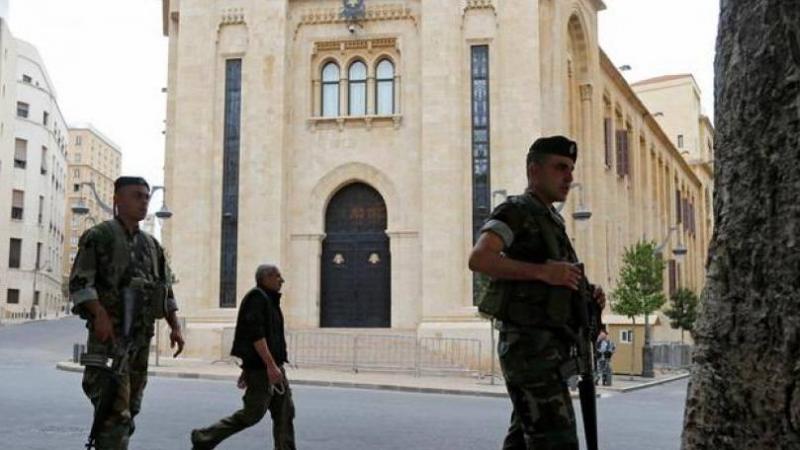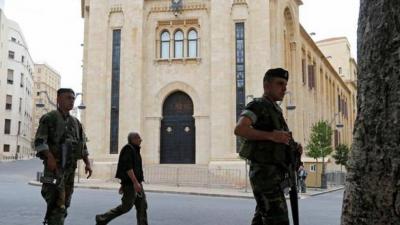It is certain that there is no fixed majority in the 2022 Parliament. The renewal of the President of the "Amal" Movement Nabih Berri for a seventh term required the participation of Walid Jumblatt first and a necessary "intentional" breach within the "Strong Lebanon Bloc," as well as support from some non-blocked representatives. Meanwhile, the election of Elias Bou Saab as Deputy Speaker imposed a different equation based on the "Trio's alliance," namely the "Shia duo," the "Free Patriotic Movement," and its allies, alongside some independents who were gathered individually from here and there.
It is also certain that the "October 17" representatives, or "change representatives," remain prisoners of populist displays, through which they try to cover their fear of making a difference in their performance and parliamentary conduct. They will be subjected to constant tests in the coming phase, as any misstep will be "fatal." This does not mean that their opponents are in a better position, but they appeared to the public as a glimmer of hope that could turn into a new cause for frustration. Conversely, they will represent a contentious and troublesome material in the Parliament, and the election session will serve as a first model.
The March 8 forces managed to form their first majority, albeit it did not exceed the ordinary majority of 65 votes, which indicates that an agreement between Parliament Speaker Nabih Berri and the leader of the "Free Patriotic Movement," Gibran Bassil, is possible in key elections. Despite Bassil leaving the election session yesterday, denying any electoral agreement, digging into the sources of votes received by Berri and his deputy, Elias Bou Saab, confirms that the "Movement" channeled some votes from its bloc, including the Armenian deputies and representative Mohammed Yahya, in favor of Berri, while the latter gave all his bloc's votes to Bou Saab. It can be concluded that the election for the Deputy Speaker represented a model of the March 8 forces' ability to secure a parliamentary majority, with some independents.
The opposition forces, whether from the "Change forces" or the traditional parties, such as the "Forces" and "Kataeb," face a challenge in uniting their ranks. Even if they do so, it will be difficult for these groups to reach the threshold of a majority, as happened with the nomination of Ghassan Skaf, knowing that the latter is not a product of the "Change lists." He succeeded within the coalition of Wael Abu Faour and Mohammed Al-Qarawy. It is rumored that adopting his nomination by the "October 17" representatives caused a rift among them, especially since they include Orthodox deputies, most notably Melhem Khalaf.
However, the difficulty of reaching an agreement among the "Change" deputies, the "Forces," the "Kataeb," and the independents on a single candidate led to the proposal of an Orthodox candidate from outside the two camps in an attempt to engage in a balanced battle against the others. What elevated Skaf's standing was the "Democratic Gathering's" vote in his favor, with its members previously aware that the battle would grant Bou Saab the title of President of the Council. Still, they preferred not to grant him their votes due to their negative stance toward the "Free Patriotic Movement" and its leader.
It is worth noting that one deputy observed that Ghassan Skaf's battle was fought away from him, as he seemed indifferent to what was happening behind him during the session and was only concerned with the speech he prepared to deliver in the event of his victory. As for the "pointage" and communication with deputies, no effort was made. Nevertheless, an opposition deputy claimed that some "change deputies" offered the majority on a silver platter to their opponents, under the pretense of voting with a blank ballot and remaining neutral, as evidenced by the downfall of Ziad Hawat against Alan Aoun, knowing that the "oppositions," if united with the "Jumblattis" and "Future Movement," could collectively form a solid majority.
Once again, the leader of the "Progressive Socialist Party," Walid Jumblatt, proves he is capable of managing the game as a balancing act that can tilt the scales in favor of the March 8 forces specifically, enabling them to secure a parliamentary majority. Those sitting in opposition seats, if united, would find it difficult to surpass this threshold.




